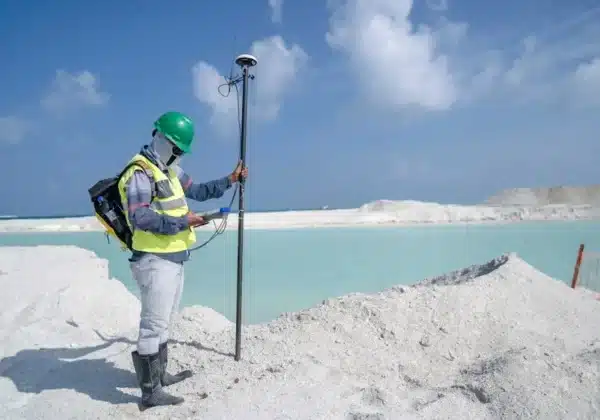Land surveying is a crucial process in the world of real estate, construction, and land development. It ensures accurate measurements and boundaries, helping various stakeholders make informed decisions. But what exactly are land surveying services, and why are they so important? In this blog, we’ll explore the key aspects of land surveying services to give you a clear understanding of their significance.
What Are Land Surveying Services?
Land surveying services involve measuring and mapping land areas to determine boundaries, elevations, and other critical features of the terrain. These services are indispensable for various sectors such as construction, where precise measurements are vital to align infrastructure projects with legal and environmental stipulations. By utilizing exact calculations and observations, land surveyors establish legal land boundaries, avoid property disputes, and aid in developing landscape features for urban planning and development.
We’ve honed our land surveying expertise over the years at Ludlow Engineers. Our vast experience includes facilitating seamless communication between stakeholders in property development through precise and reliable surveys. We are equipped with multiple civil engineers and professional surveyors ready to manage projects of any scope, ensuring success from start to finish.
Why Are Land Surveying Services Important?
The importance of land surveying services cannot be overstated. They ensure accuracy, legal compliance, and safety in property development and construction. For property developers, these services provide the essential groundwork for planning by creating detailed maps of the site, which can help in identifying potential problems before they arise. Additionally, they are invaluable in settling disputes between neighbors over property lines and ensuring that any construction work is carried out on legally verified land.
Essentially, land surveys act as the foundation stones for any project. They support construction companies by verifying that buildings are erected in their designated spots, maintaining the quality and safety standards of designs. Proper surveying can also help in the preservation of natural landscapes by delineating areas that need environmental protection in compliance with local regulations. Overall, they streamline project timelines and minimize costs by anticipating potential issues early in the process.
Types of Land Surveys
Land surveys can be categorized into various types, each serving its distinct purpose. The most common is the boundary survey, which establishes the exact limits of a property. Topographic surveys, on the other hand, focus on mapping the contours and elevations of the land surface. This is crucial for understanding the terrain and planning construction or landscaping projects appropriately.
Moreover, there are construction surveys which provide essential data for building infrastructure that aligns with precise design specifications. These surveys ensure that every aspect of a construction plan fits seamlessly within the designated parcel, thereby minimizing costly adjustments during the project execution. Other surveys, like the ALTA/NSPS survey, offer extensive information adhering to national standards and are typically used during commercial property transactions.
Each survey type requires specific skills and technology, tailored to meet the project needs, whether these are commercial, residential, or municipal projects. Choosing the right type of survey is paramount in guaranteeing that a project proceeds smoothly and fulfills all legal requirements. For those new to land surveying, understanding the unique attributes and roles of these surveys can provide valuable insight into how land development becomes possible through meticulous planning.
Tools and Technology Used in Land Surveying
The field of land surveying has significantly evolved with the introduction of advanced tools and technology. Today, professionals rely heavily on technologies such as GPS and 3D laser scanning to acquire precise data efficiently. Drones also play a valuable role in capturing aerial footage of vast terrain quickly, allowing surveyors to gather comprehensive data without setting foot on the ground. These tools contribute to highly accurate representations of land features and boundaries, significantly enhancing project outcomes.
Traditional equipment like theodolites and total stations remain integral, providing accurate angular measurements and distance calculations. However, when combined with cutting-edge software, such as CAD or geographic information systems, these conventional tools become even more powerful, facilitating the creation of detailed maps and models. Through such integrations, surveyors produce reliable and actionable data that supports decision-making across various project stages.
Adoption of advanced tools has not only increased the precision of land surveys but has also expedited the entire process. This technological advancement ensures that projects maintain their schedules without compromising on the quality and accuracy of the survey findings. Professionals who demonstrate competence in both traditional and modern equipment provide a robust foundation for land surveying endeavors.
The Role of Professional Land Surveyors
Professional land surveyors are vital players in the realm of property development and construction. These experts are responsible for conducting surveys, analyzing complex data, and generating reports that guide the entire development process. Their role spans across several areas, such as identifying property boundaries, assessing site topography, and creating precise site plans.
A licensed land surveyor’s proficiency ensures that surveys conducted comply with legal standards and regulations. At Ludlow Engineers, our experts bring extensive knowledge and experience to each project, forming a key part of your development team. By interpreting data accurately and offering guidance, they ensure that all aspects of surveying meet the required benchmarks.
Beyond measuring and mapping, surveyors often collaborate with architects, engineers, and builders, acting as advisors on best practices for land use. They play a crucial role in ensuring that all stakeholders maintain a shared understanding of the property’s attributes. This collaboration enhances the execution of plans, better aligning them with practical, legal, and environmental constraints.
Land surveyors are indispensable in navigating the multifaceted nature of construction and property development. Their guidance enhances clarity, upholds precision, and assures compliance, underpinning the success of real estate ventures. Relying on their expertise ensures robust foundational work, paving the way for sustained project success and legal assurance.
Understanding the Value of Land Surveying Services
In conclusion, land surveying services are essential for ensuring accurate land measurements and boundary determinations. They play a pivotal role in real estate, construction, and legal contexts. By understanding the different types of land surveys, the tools used, and the expertise of surveyors, you can appreciate the value they bring to any project involving land and property.




